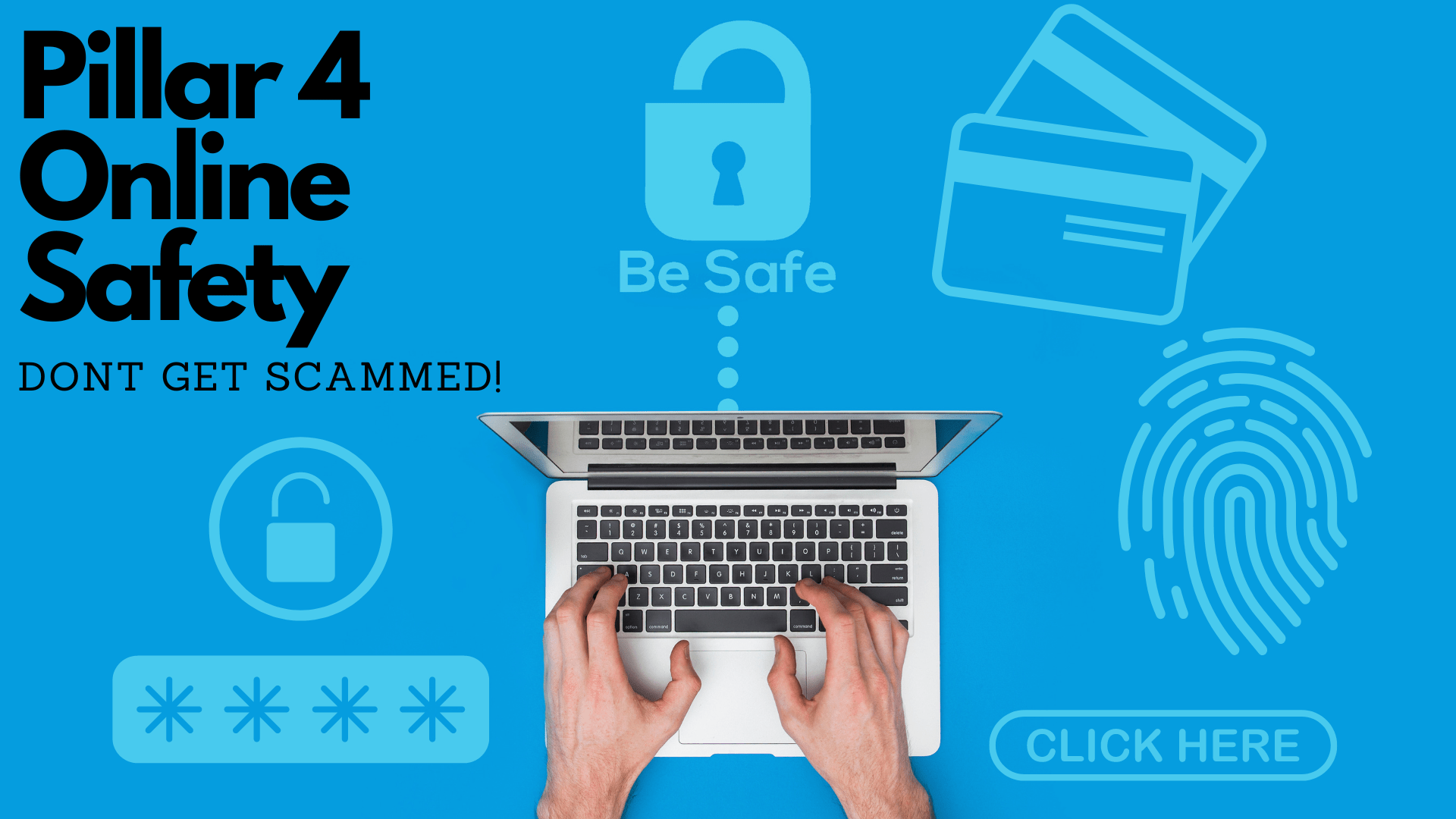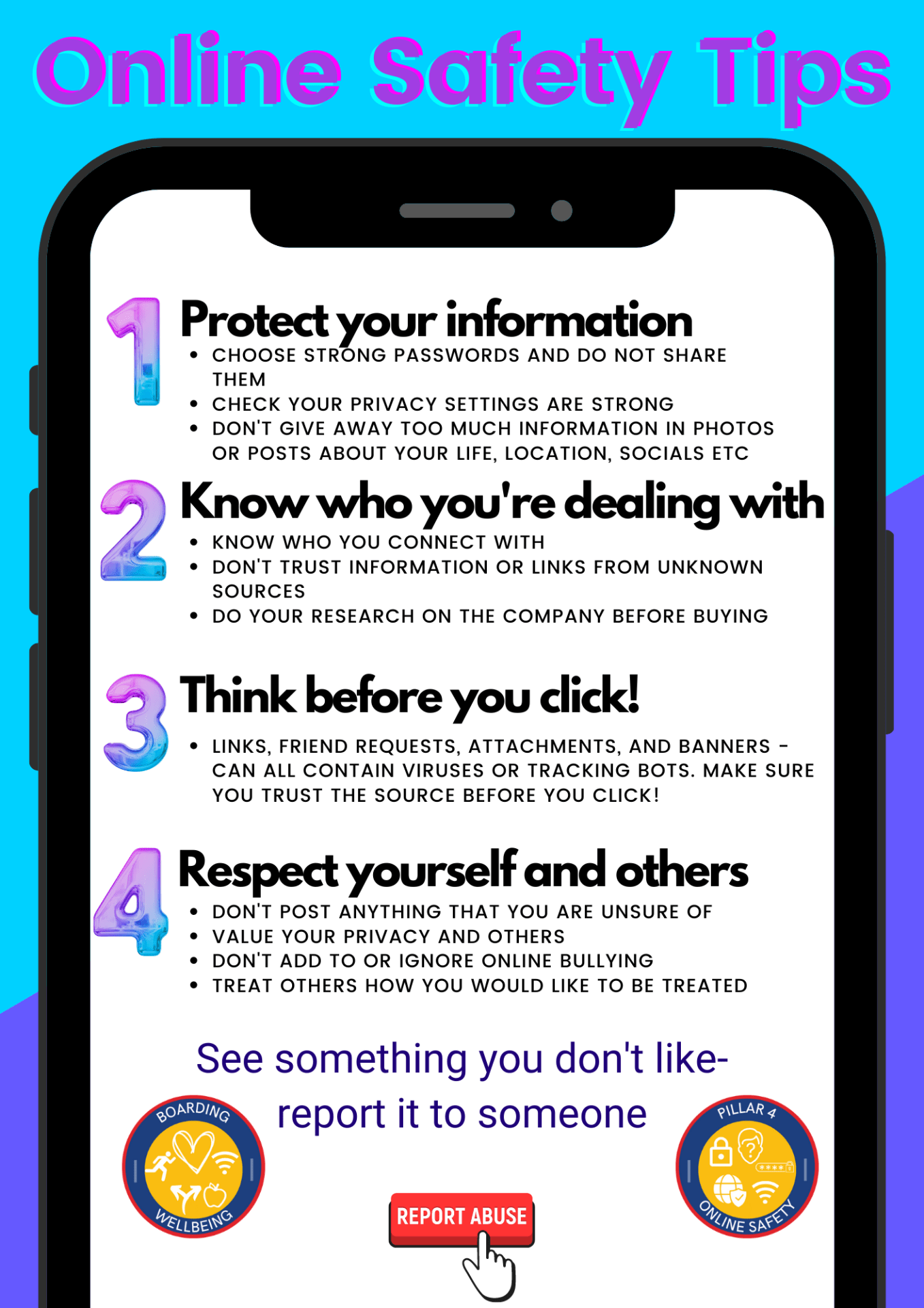Online safety is an important aspect of overall well-being in today’s digital age, and as part of Pillar 4 of the Wellbeing programme, we focused on scams, security, and identity theft.
Scams, security, and identity theft can all have serious consequences for students, ranging from financial loss to damaging one’s reputation or identity. It’s important to be aware of the different types of online scams that exist, such as phishing scams, malware and social engineering. By learning how to identify these scams and take appropriate precautions, individuals can better protect themselves and their personal information online.
In our House Meetings this week the Wellbeing Advocates delivered a presentation on How to identify scams and how to protect themselves.
They also did a Kahoot Quiz to see how informed they are about online safety. The questions were;

